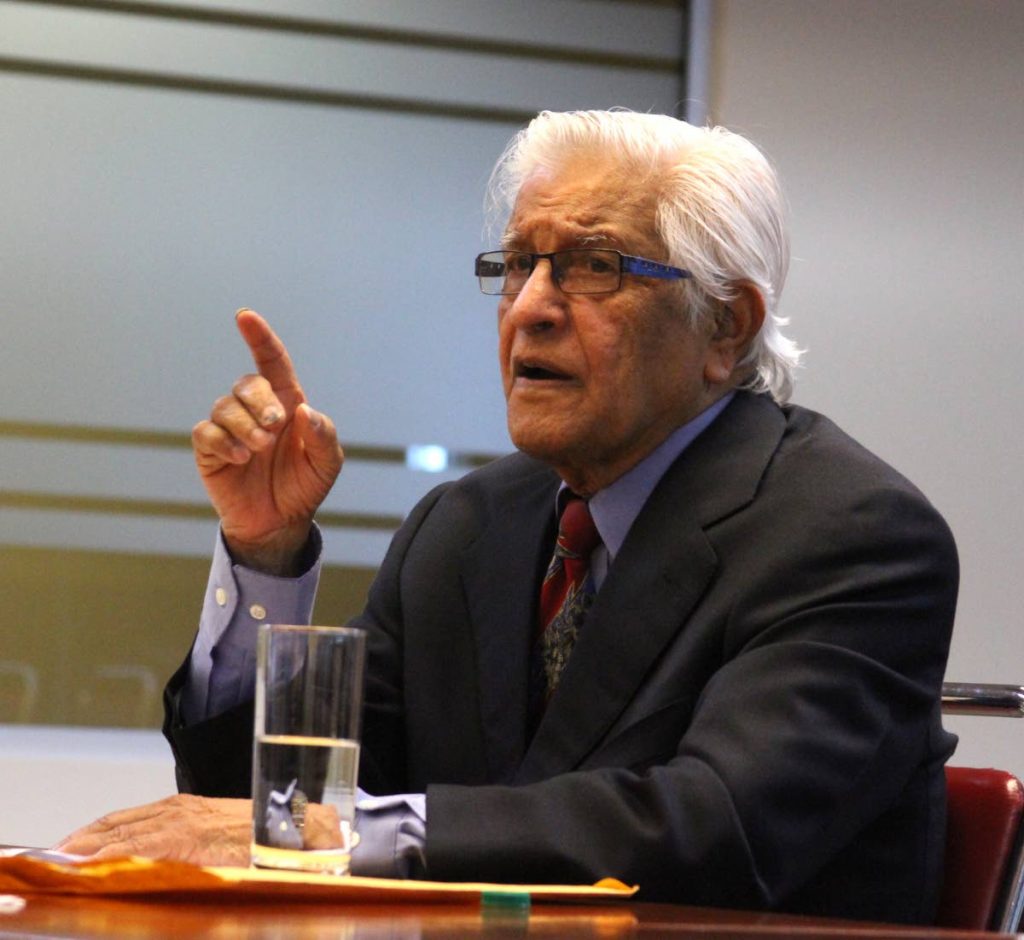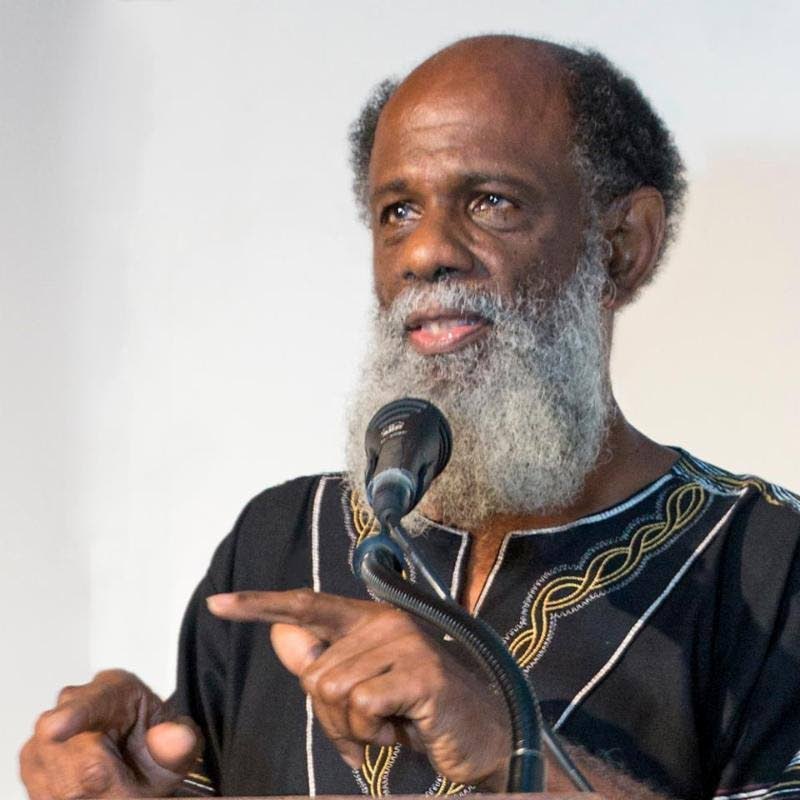Panday: Trinidadians living on dependency syndrome

Too many people are living on a dependency syndrome created by the PNM.
Former prime minister Basdeo Panday said if we are going to solve the problems in this country we have got to be honest with ourselves and first ask the origins of the problem.
“How did the problem begin? What created this problem?”
Panday was responding to the Prime Minister’s statement that Afro-Trinidadians were not doing as well as expected or as well as they might. During an Emancipation Day celebration he hosted at the Diplomatic Centre in St Ann’s on Saturday, Dr Keith Rowley said there might be some connection to the high level of crime in the country, and also why some people refused to address the root problems of crime 15 years ago.
“If Mr Rowley is honest with himself he’ll come to the conclusion that what is happening is a result of the PNM’s creation of a dependency syndrome in which Trinidadians lived on, well, some of them. Now that there is no money to satisfy it, the people who are involved in this syndrome have no skills, they are not trained, they have no work ethic, so how are they going to live without the syndrome.
“What Dr Rowley ought to do is to really, honestly ask how did Laventille come into being. How did Sealots come into being? When he gets the answer to that he will know how to solve the problems in the country.”
Chairman of the Emancipation Support Committee Khafra Kambon said while he was happy that the PM was addressing an issue of things that were specifically affecting the African community, he said Rowley had to find ways to tackle it.

“One of the reflections of those is the levels of crime which we see in predominantly African communities. Once that is seen as an issue, it means that we have to find ways in which we’re going to tackle it. We have to analyse the sources correctly.
“I know he is in error, and this is where politics comes into the analysis. He mentioned something about it having its genesis 15 years ago. I don’t know if statistically we’d seen any measure of that. That is more of a political than analytical statement. We should move beyond that.
“Different parties could have different approaches that could have negative impact, but I don’t think that is fundamental to the issue and we should avoid making that fundamental to the issue. Specific things could be said, but it must not look as though that is the turning point.”
Kambon said once there was an unaddressed problem with roots as deep as the crime that was being seen in predominantly African communities then aggravating factors could be looked at but those could not be considered root causes.
“I know you can’t have root cause 15 years ago because because the problem was generated before and it was a continuing downward spiral. We are still seeing that downward spiral is continuing. We have to recognise the various sources of the crisis that we are faced with.
“You do have historical roots for it and different groups that came into this society that had vastly different experiences based on the way they have been incorporated into the society, and the group that had the roughest ride was the Africans. Many of the traumas were created by enslavement and they have not been addressed.”
Kambon said as the country developed a middle class, and while Africans had a consciousness of their blackness, they were culturally very drawn into the European sphere.
He said it eventually created an alienation between those who were very successful and those who remained poor and struggling to develop.
He said over time that too had its impact on class separation and the way it became institutionalised, leading to official neglect of communities of the poor and, therefore, marginalising them more. He added that most times there had been intervention from a political level as though dealing with bad children as opposed to equal human beings.
“If we don’t analyse it properly then we are not going to address it properly because things build on each other. It is a developmental issue that has to be tackled. It is remarkable that we are not seeing any kind of action addressing the area where those high in society are the main beneficiaries from crime at the street level.
“So we have further deterioration in our communities taking place because children now are born into so much violence that we are in danger of developing a really serious culture of crime. A young man growing up in a community of violence wants to emulate the persons who pervade the violence.”
General secretary of the Sanatan Dharma Maha Sabha Sat Maharaj said he was unable to say if Afro-Trinidadians were not doing well.
“He (Rowley) will have the data and he will know. I think he was talking in the context of the African liberation day coming up. I could talk on behalf of the Hindu community because I am following them, but I can’t do a comparison, I don’t know, I couldn’t compare. I don’t know what they are doing in professions and in business.”


Comments
"Panday: Trinidadians living on dependency syndrome"